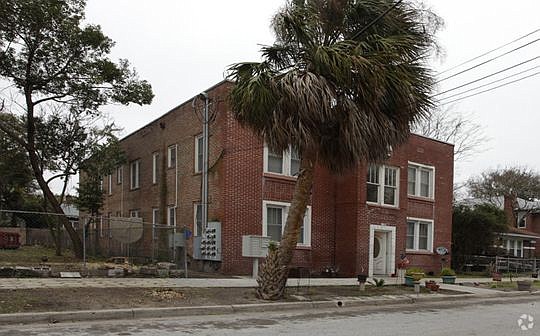
A settlement of $425,000, a fine of $25,000, a $1.5 million development grant and amending the municipal zoning code.
Plus a new policy to make sure it doesn’t happen again.
That’s what the city wants to do to make a lawsuit filed in federal court alleging housing discrimination go away.
It started with the nonprofit Ability Housing Inc.’s proposal to renovate a 12-unit apartment building in Springfield to create housing for chronically homeless and disabled people.
Ability Housing later said it was for disabled and homeless veterans.
When Ability Housing began in March 2014 the permitting process for the project to be funded with a state grant, the city found the project was a new “special use” that was prohibited by the Springfield historic district zoning overlay.
Ability Housing sued the city in November 2015, alleging it violated the Federal Fair Housing Act and the Americans with Disabilities Act for blocking the project that was intended to support people with disabilities.
The suit was joined by Disability Rights Florida and the U.S. Department of Justice.
After Ability Housing filed the complaint, the city ruled the organization ineligible to compete for Jacksonville Journey grant funding because of the pending litigation.
Three ordinances related to the lawsuit are being considered by City Council to:
• Amend the Springfield overlay and city zoning regulations to ensure compliance with federal law
• Appropriate $425,000 for a settlement with Ability Housing and Disability Rights Florida to cover the organizations’ out-of-pocket legal expenses and a portion of their attorney’s fees
• Appropriate $25,000 for payment of a federal civil penalty
The city also would be required to designate a fair housing compliance officer to oversee its compliance with federal housing regulations and provide ongoing fair housing and ADA training for city officers, elected and appointed officials and employees with duties related to planning, zoning, construction, permitting, code enforcement or occupancy of housing.
That includes the mayor, City Council, planning commissioners and members of the Certificate of Use Board.
Also in the settlement is a requirement for the city to award a $1.5 million grant for development of permanent supportive housing for disabled people within one year following dismissal of the lawsuit.
“The intent is to prevent discrimination,” said attorney Tom Ingram, who represents Ability Housing.
Changing the overlay would put Springfield “on an equal footing with the other zoning districts” and would ensure “disabled people can live anywhere in Jacksonville,” he added.
During a public hearing at the council meeting Tuesday, several speakers urged rejection of the proposed settlement.
Springfield resident Charlotte Cudd characterized it as a “one-sided solution” and said if the settlement is approved and implemented, “treatment facilities can open in your neighborhood.”
Christine Farley, a Springfield resident and member of the Springfield Improvement Association and Woman’s Club, said she fears if the zoning overlay is changed to allow more supportive housing development, it could again lead to “speculators and absentee landlords” that were prevalent there before the overlay went into effect nearly 20 years ago in an effort by the city to help revitalize the neighborhood.
Fran Downing, who moved into Springfield before the overlay was adopted, said she remembers day-and-night foot traffic and a lot of prostitution and drug activity related to unlicensed lodging facilities such as boarding houses.
“The police came out a lot,” she said.
Other speakers made a plea for more discussion of possible overlay changes.
Thomas McCaffrey said he appreciates the city “protecting the neighborhood” but asked for time to properly vet the changes proposed in the settlement.
SPAR Executive Director Christina Parrish-Stone said she accepts that the Springfield overlay probably needs to be amended, but “we want a thoughtful process.”
Before the public hearing was closed Tuesday, council President Lori Boyer directed that the ordinances be deferred next week by the Land Use & Zoning Committee in order to give the Office of General Counsel, residents and the plaintiffs time to fully review the proposed zoning regulations and possibly make amendments.
Under the terms of the settlement proposal, the city must enact by April 30 legislation to implement the zoning changes.
Ingram said assuming the parties can come to agreement on the final terms, the ordinance could come back to council for a vote on March 28, which would be plenty of time to meet the deadline.
“Our hope is that our opponents will identify specific components in the zoning they want changed. We need specifics to determine whether the changes would allow the city to continue to discriminate,” he said.
If his clients can’t come to terms with SPAR and the city, the settlement could be in jeopardy, Ingram added.
“The consent order is based on Ability Housing and Disability Rights Florida accepting the final terms of the settlement.
“If it’s unacceptable, they may proceed to trial,” he said.
The ordinances –– 2017-36, 2017-68 and 2017-69 –– may be viewed in the City Council section of coj.net by clicking on Legislation and then City of Jacksonville Bill Search.
(904) 356-2466